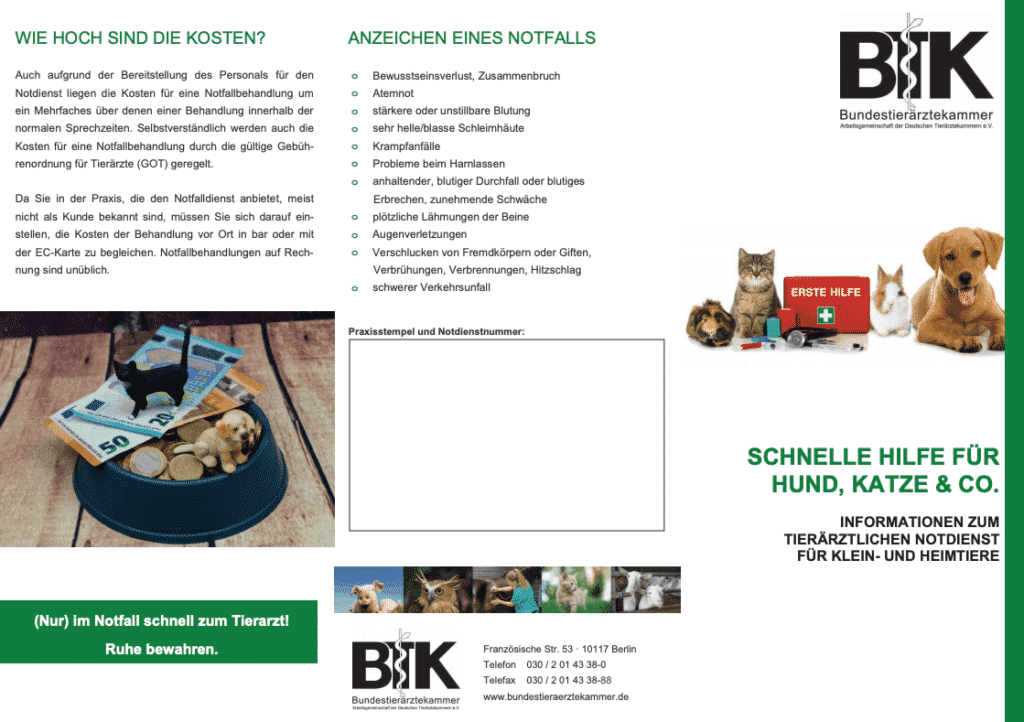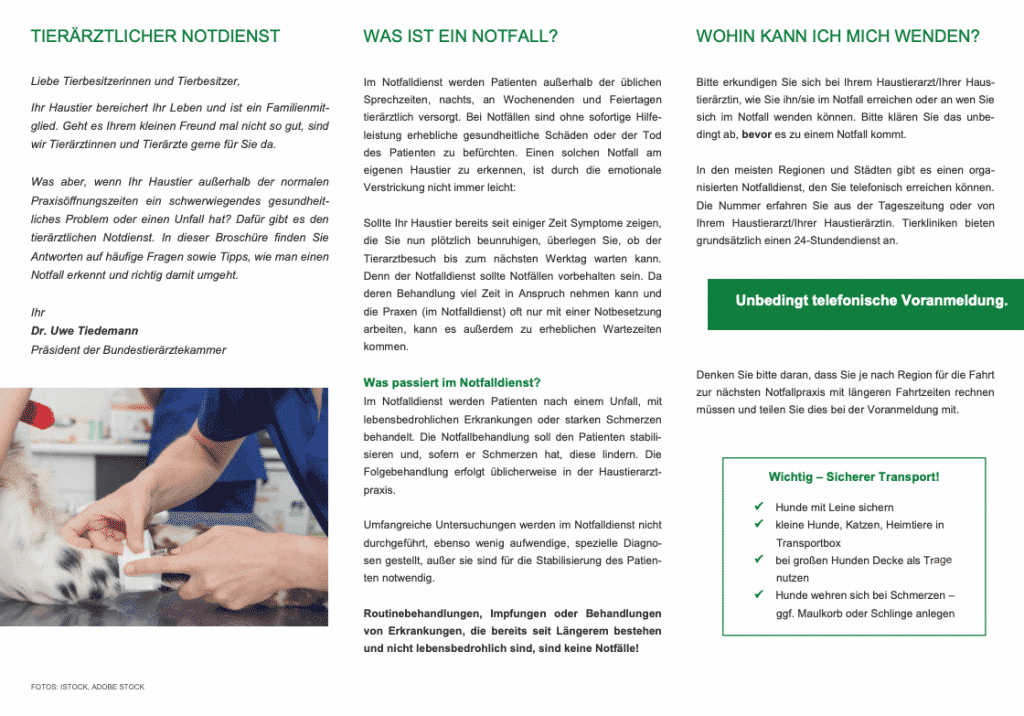
New emergency service regulations / fees from January 2020 (emergency service GOT)
New emergency service regulations / fees from January 2020 (emergency service GOT) https://doc4pets.de/wp-content/uploads/2019/12/Screenfoto-2019-12-24-um-11.35.34-1024x722.png 1024 722 Sven Jan Arndt Sven Jan Arndt https://secure.gravatar.com/avatar/fef64081df258be6f19e1e0033636b82?s=96&d=mm&r=gFrom January 2020, in accordance with the law passed by the Federal Council on December 20, 2019, new tariffs for the emergency service of veterinarians will apply (emergency service GOT).
Reason: Comprehensive emergency service provision in veterinary medicine is increasingly at risk
So far, practices or clinics have barely been able to cover the costs. In order to comply with the Working Hours Act, increased personnel costs are necessary and this must be paid. Therefore, increased fees should help to increase the contribution margin.
In human medicine, collective agreements provide for night and on-call shifts of up to 36 hours and are compatible with the Working Hours Act. This does not apply to employed veterinarians - even in emergency service, they are only allowed to work eight or a maximum of ten hours at a time and then have to take eleven hours of rest. This is also monitored by the trade regulator and violations by veterinary practices/clinics are punished with high fines. However, this means a significant shortage of staff, and the costs and skilled workers are difficult for many practices and clinics to cope with.
Key points of the update of the emergency service GOT
So what exactly should change legally from January 2020?
- “Emergency service fee”: In the future, a mandatory, flat-rate basic fee of 50 euros will be due for a veterinary emergency outside of regular consultation hours.
- Minimum rate for veterinary services: From the moment the law comes into force, emergency services must be billed at at least twice the fee rate; optionally, depending on the effort, they can be billed at a maximum of up to four times the rate (previously a maximum of three times the rate).
- Changed emergency service times: The “night time” has been extended; it is now between 6 p.m. (previously 7 p.m.) in the evening and 8 a.m. (previously 7 a.m.) on weekdays. In addition, new weekend times now apply - previously the weekend was defined as Saturday from 1 p.m. to Monday 8 a.m. weekend is now extended The new emergency service fees must be billed for this period. (Please note for employed veterinarians: These “emergency duty times” are not identical to the corner times from which a night/weekend service surcharge must be paid under working time law.)
The last point in particular led to unrest and misunderstandings - our good news for you:
The Federal Veterinary Association makes it clear that we can and will continue to hold regular consultation hours on Saturdays and evenings until 7 p.m. without these surcharges!
What is an emergency?
It was also important for the Federal Veterinary Association to establish what an emergency is and what should and should not be provided in the emergency service. You can find comprehensive information about this in the attached flyer from the Federal Veterinary Association:


- Published in:
- Generally

